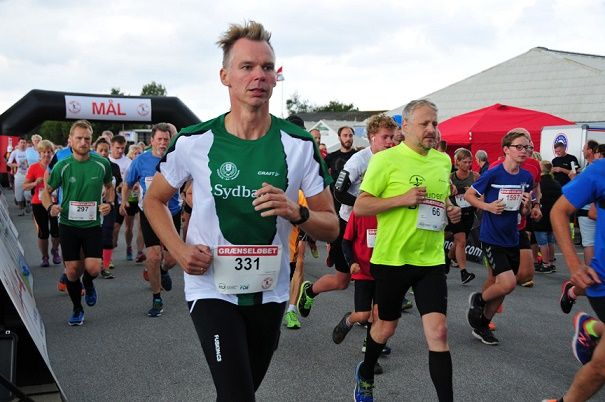The new regulations put in place by politicians to stop illegal immigrants at the Danish/German border are about to have an unusual side-effect.
For the 32 years the annual Grænseløb has been run, participants have been able to cross the border freely. When the race is run on September 16, all that may have to change, TV2 Nyheder reports.
Not running on empty
The police force in southern Jutland, Syd- og Sønderjyllands Politi, now insists the estimated 400 participants on the run must bring their passports or a valid travel document with them.
To the organisers, this has come like a bolt from the blue. “It is really sad. We feel that it is a good thing – especially these days – that we can still run over the border without a passport,” said one of the race organisers, Morten Hartmuth, to TV SYD.
The 12 kilometre route that starts in Kruså in Denmark crosses into Germany and then back to Denmark again to finish in Kruså.
Name and number
The German police, however, are taking a more relaxed attitude. They would be satisfied with a list of names and numbers of all the runners.
The Danish organisers initially sought a dispensation, thinking it would be no problem. However, the Danish police have refused to grant one and now a local MP, Eva Kjer Hansen, has taken the matter up.
“I’ll have a word with the minister of justice and ask whether we can’t be a little flexible here and grant a dispensation so that we treat it in the same way as the German police,” said Kjer Hansen.
“Then nobody will have to have their passport with them in their back pocket.”















